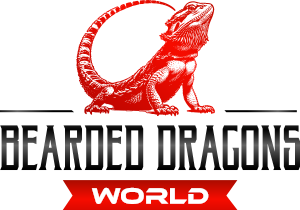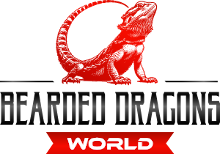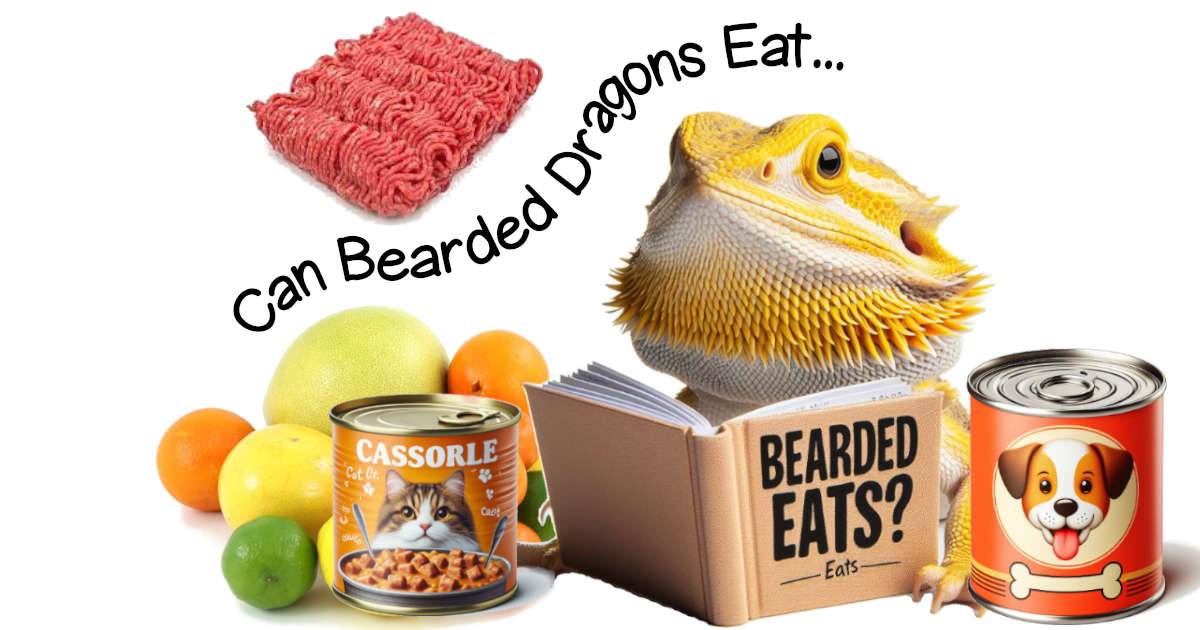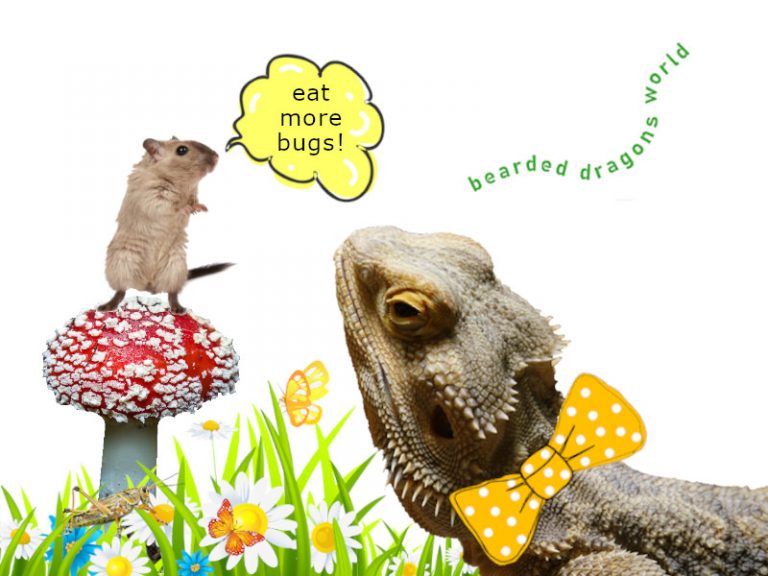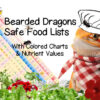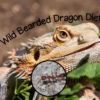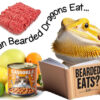Jump To…
Can Bearded Dragons Eat Cat Food?
Bearded dragons should not eat cat food either canned or dry (Wildlife, 2024). Feeding cat food could result in an excessive high fat diet (Stahl, 2003). Coupled with the potential for vitamin D3 overdose and incorrect calcium to phosphorus ratio for bearded dragons, and could pose health risks.
Cat food is formulated to meet the dietary requirements of cats, which are obligate carnivores, bearded dragons have different nutritional needs. The primary concerns with feeding cat food to bearded dragons include:
- Inappropriate Nutrient Balance: Cat food is high in proteins and fats, which can lead to obesity and liver problems in bearded dragons.
- Inappropriate Calcium to Phosphorus Ratio: The calcium to phosphorus ratio in cat food is not suitable for bearded dragons, potentially causing an imbalance of these critical minerals. Most commercial cat foods are formulated to meet the dietary needs of cats, which generally require a calcium to phosphorus ratio in the range of 1:1 to 1.2:1 whereas bearded dragons need 2:1 or more.
- Excessive Vitamins A and D3: While the exact requirements of vitamins A and D3 for bearded dragons are not fully known. Excessive amounts can cause health issues, including organ failure. Symptoms are consistent with those seen in lizards fed a diet high in dog and cat food, leading to conditions such as renal failure and metastatic calcification.
- High Fat Content: Cat food, being high in fat, is inappropriate for bearded dragons and can contribute to obesity and related health issues.
For bearded dragons, it’s best to avoid cat and dog foods due to their high fat and vitamin D3 contents, which can lead to health issues when fed regularly (RSPCA).
Can Bearded Dragons Eat Dog Food?
No, bearded dragons should not eat dog food either dry or canned (Wildlife, 2024). Dog food is formulated for dogs and doesn’t align with bearded dragons’ dietary needs, especially regarding protein, fat content, fiber, D3 and the calcium to phosphorus ratio. Bearded dragons need a higher calcium to phosphorus ratio and a diet rich in plant-based nutrients, which dog food lacks. Feeding them dog food can result in nutritional imbalances and potential health problems.
Specifically the reasons why dog food is not good for bearded dragons:
- Nutritional Imbalance: Dog food typically contains higher levels of proteins and fats than suitable food for bearded dragons.
- Inappropriate Calcium to Phosphorus Ratio: The calcium to phosphorus ratio in dog food, typically around 1:1 to 2:1, does not meet bearded dragons’ needs for a ratio of 2:1 or higher. Additionally, dog food contains vitamin D3 levels formulated for dogs, which may not be appropriate for bearded dragons and could lead to vitamin D3 overdose.
- High Fat Content: The high fat content in dog food can contribute to obesity and related health problems in bearded dragons.
- Lack of Plant Material: Bearded dragons are omnivores that require a significant amount of plant-based foods in their diet. Dog food lacks the necessary plant material and fiber that bearded dragons need for proper digestion and nutrition.
- Risk of Toxicity: Some ingredients commonly found in dog food may be toxic to bearded dragons or may cause digestive issues.
Can Bearded Dragons Eat Meat?
Bearded dragons can consume small amounts of meat like raw minced beef, but it’s generally not recommended. In the wild, they might occasionally consume animal protein (although studies only show vegatation and arthropods), but this includes ingesting bones, which alters the calcium to phosphorus ratio compared to meat alone.
The main concerns with feeding meat to bearded dragons include:
- High protein levels: Excessive protein in meat can overburden their renal system, risking kidney problems.
- High fat content for bearded dragons.
- Inappropriate calcium to phosphorus ratio: Bearded dragons require 2:1 or higher calcium to phosphorus ratio. See the table below for some meats ratio.
| RAW MEAT | Ca:P | Ca mg | P mg |
| Beef casserole meat | 0:1 | 9 | 190 |
| Beef low fat mince | 0:1 | 7 | 203 |
| Beef rump lean | 0:1 | 4 | 230 |
Bearded dragons’ natural diet primarily consists of arthropods and vegetation, which better suits their nutritional needs.
Can Bearded Dragons Eat Mice?
Bearded dragons can eat mice, particularly newborn mice known as pinkies. However it’s not necessarily recommended due to health concerns. Pinkies, weighing 1-2 grams, can be fed to bearded dragons sparingly, about once every few weeks (Raiti, 2012), too many and you may risk obesity—a common issue in captive reptiles.
Gout, often linked to diets high in red meat, is prevalent among captive bearded dragons. Additionally, mice used as feed can carry zoonotic diseases like salmonella and Lymphocytic Choriomeningitis Virus (LCMV), posing health risks to both humans and other animals.
References
Boyer, T. H. (2015). How to Feed Reptiles Right.
Raiti, P. (2012). Husbandry, Diseases, and Veterinary Care of the Bearded Dragon (Pogona vitticeps). Journal of Herpetological Medicine and Surgery, 22(3-4), 117–131.
RSPCA South Australia, Bearded Dragon Care Sheet. (n.d.).
Stahl, S. J. (2003). Pet lizard conditions and syndromes. Seminars in Avian and Exotic Pet Medicine, 12(3), 162–182.
Wildlife. (2024, January 4). Victorian Wildlife Rehabilitation Guidelines. Wildlife.
